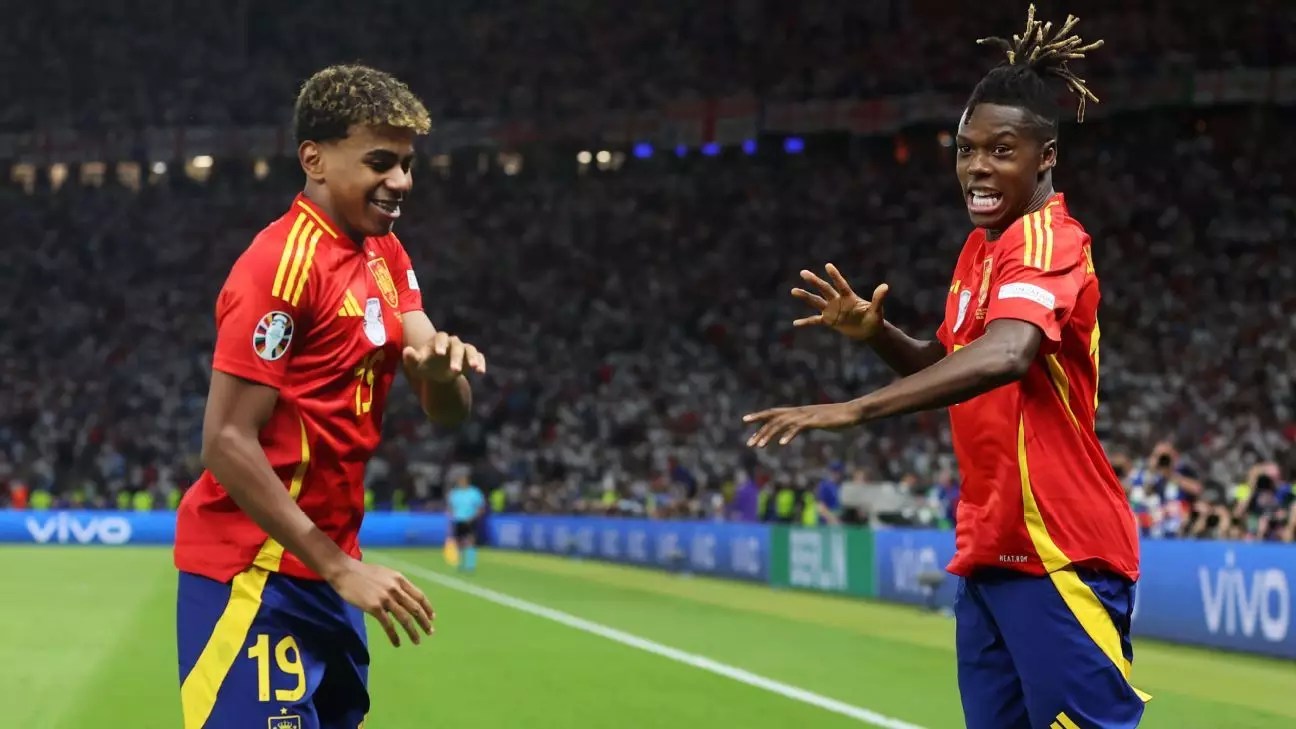Spain’s victory at the Euro 2024 marked a significant milestone for the national team, as they secured their fourth title in the tournament’s history. The triumph was not just about the silverware but also about the evolution of Spain’s football style both on and off the pitch. The team, led by coach Luis de la Fuente, showcased a more dynamic and versatile approach that caught the attention of football enthusiasts worldwide.
Adapting to Modern Demands
One of the key factors in Spain’s success was their ability to adapt to the demands of modern football. The team, which had previously relied heavily on possession-based tactics, embraced a more flexible style under de la Fuente’s guidance. The coach emphasized the importance of evolving tactically while staying true to their roots, a balance that proved to be crucial in their journey to glory.
Youthful Talent Driving Change
Central to Spain’s transformation were young talents like Nico Williams and Lamine Yamal, who played pivotal roles in the team’s success. Their energy, creativity, and in-game intelligence injected a new sense of dynamism into Spain’s gameplay. Williams and Yamal’s contributions, both on and off the pitch, reflected a new generation of Spanish footballers ready to make their mark on the world stage.
Beyond their on-field performances, players like Williams and Yamal symbolized a more diverse and inclusive Spain. As young Black men with immigrant roots, they became idols for aspiring players across the country. Their presence in the team highlighted a shift towards a more representative and unified Spanish squad, where regional rivalries were set aside for a common goal of success.
The camaraderie and spirit within the Spanish squad were evident throughout the Euro 2024 campaign. Players from different clubs and regions came together under the leadership of captain Álvaro Morata, forming a close-knit group that felt more like a modern family. The team’s unity and togetherness, both on and off the pitch, played a significant role in their triumphant journey to the top of European football.
Looking Ahead
As Spain sets its sights on the 2026 World Cup in the United States, Canada, and Mexico, the team’s newfound style and success provide a solid foundation for future endeavors. With a blend of experienced veterans and exciting young talents, Spain is poised to continue pushing the boundaries of modern football and inspire a new generation of players to carry the torch forward.
Spain’s evolution in football reflects a broader shift towards innovation, adaptability, and inclusivity in the sport. The team’s triumph at the Euro 2024 not only signifies a new chapter in Spanish football history but also serves as a testament to the endless possibilities that come with embracing change and pushing the boundaries of tradition. As Spain embarks on the next phase of their journey, one thing is clear – the future of Spanish football looks bright, bold, and undeniably modern.


Leave a Reply